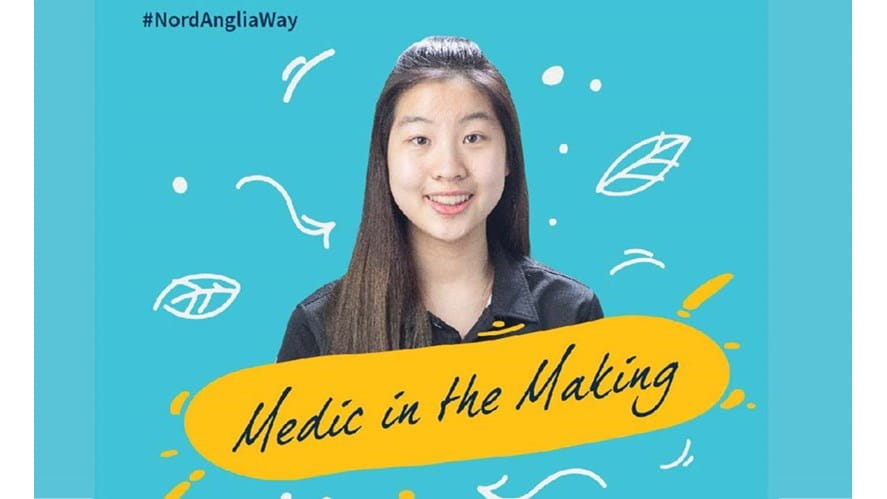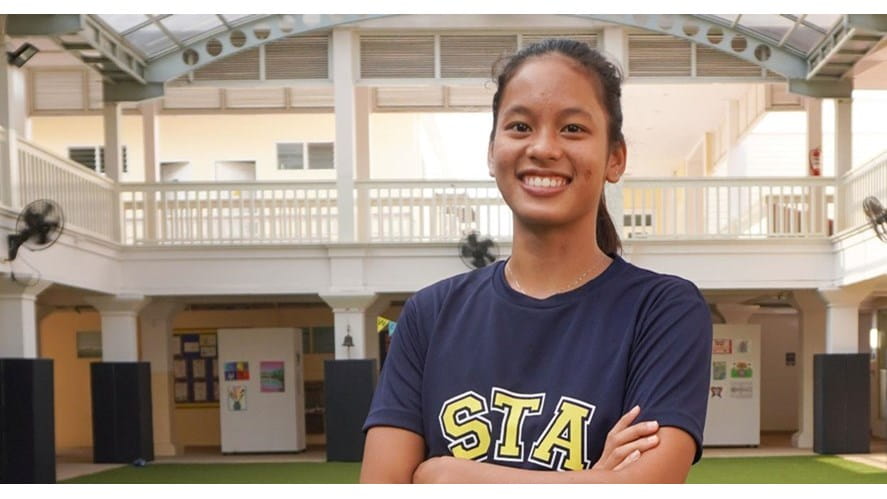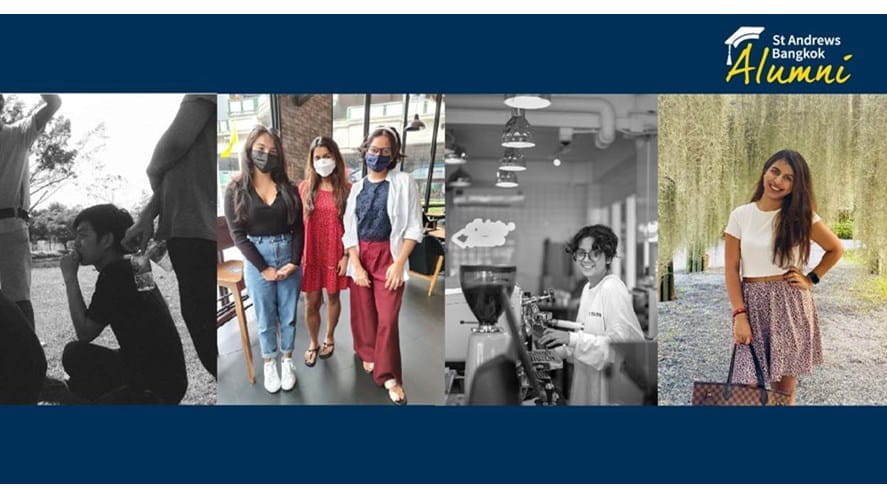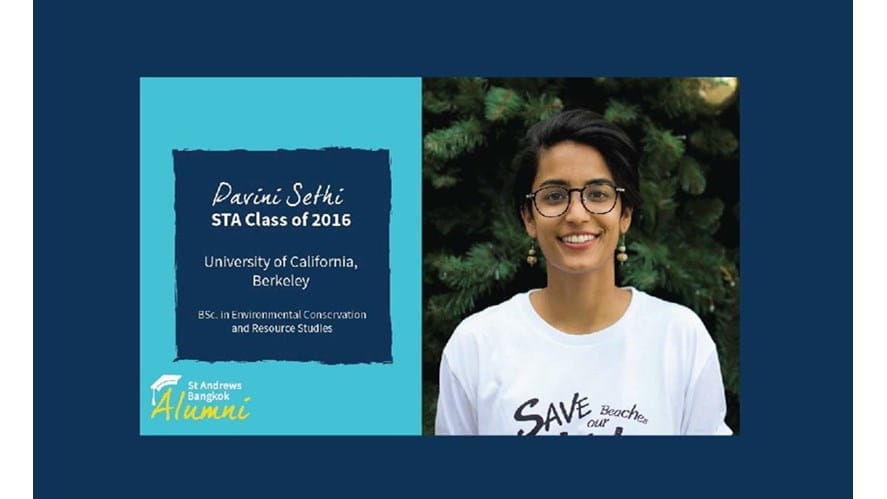Ing P sets her sights on enhancing rural Thai healthcare
Meet Ing Prasansappakit, a graduate of the STA Class of 2021. Ing has excelled over the last two years at St Andrews, from getting immersed in extracurriculars, to starting her own medical charity project and receiving outstanding university offers. Ing has topped her journey off with an outstanding 43 points in the IB Diploma. Ing now sets her sights on a Medicine degree in Thailand and aims to enhance the rural Thai Health Care system.
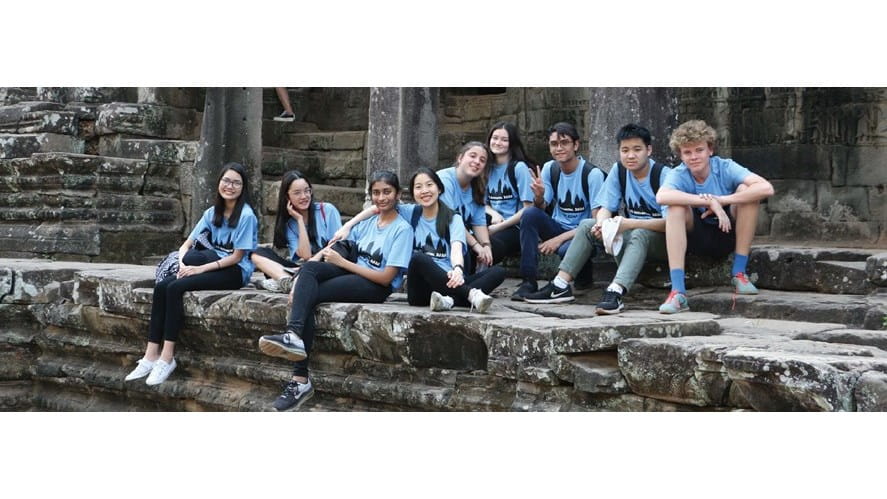
Meet Ing Prasansappakit, a graduate of the STA Class of 2021. Ing has excelled over the last two years at St Andrews, from getting immersed in extracurriculars, to starting her own medical charity project and receiving outstanding university offers. Ing has topped her journey off with an outstanding 43 points in the IB Diploma. Ing now sets her sights on a Medicine degree in Thailand and aims to enhance the rural Thai Health Care system.
Ing has kindly answered some of our questions about the IB, life at St Andrews and provided some excellent tips and advice for students wishing to study Medicine for university.
What was the best part of the IB?
-
I would say the best part was how STA teachers and staff have made the workload of the IB much more manageable for us Senior Studies students. Since the IB involves a lot of coursework such as the Internal Assessments and Extended Essay, how the school has set several deadlines to help us track our working progress, and the constant reminders about CAS have been incredibly beneficial. In addition, STA has also successfully provided a growth-mindset learning environment throughout the two years journey of the IB, which, I personally think, was a key encouragement that enhanced us to tackle such a rigorous course like the IB.
What is your best memory at STA?
- It is a tough question to choose just one memory. However, personally, I would like to say it is the overall welcoming community and the open-mindedness of the people here that have left me with a deep impression. The teachers and staff are very approachable and understanding, while fellow students are also incredibly friendly too. All of the aforementioned has made STA feel like home for me even though I was just here for the two years of IB.
What did you do and learn from your Service hours (CAS)?
- For CAS service hours, I did quite a few things. I initiated my own non-profitable organisation called 'Covidfighters.bkk. We raised funds to supply rural hospitals with medical kits.
- Apart from initiating my own charity, I volunteered to arrange school’s events, was a member of TT club, regularly tutored at a blind foundation, and many more. Initiating as well as participating in service work has taught me a wide array of soft skills such as leadership, teamwork, and adaptability. Furthermore, these service opportunities have cultivated my empathy for others and built ethical responsibility towards society.
Did you always want to study medicine?
- When I was young becoming a doctor never really crossed my mind, I have always seen myself more in the media or business industry. However, from middle school onwards, I became more interested in the sciences. things shifted when I was introduced to the mechanism of the human body. Everything about it just seems fascinating! Accompanying my interests, immersing myself in volunteering services have made me realise that I love working and talking with people. Subsequently, I started to seek medical camps and internships, where I was inspired by medical practitioners and my passion for medicine has gradually solidified throughout the process of self-identification.
Any tips for students wishing to apply to study medicine at university?
-
In my view, time management is the key to applying medicine for tertiary education since it involves an earlier application process than the majority of faculties. Managing the IB simultaneously with preparing for external examinations to meet the entry requirements for medical schools can be quite difficult. Hence if you are passionate to pursue medicine, I highly recommend you make an earlier plan on when to do what.
-
Additionally, besides the academics, seeking a medical internship, volunteering, and partaking in different extracurriculars in order to build your portfolio is quite crucial too.
-
Another key tip from me would be to be well-aware of the kind of competencies the university you wish to apply is aiming for in a medical student. Since some may give more weight to academics while some give more importance to your personality and extracurriculars.
What do you plan to do after your university studies?
- After finishing my degree, I would like to go abroad for a clinical or research fellowship to broaden my skills and knowledge in the field I choose to specialise in. I would like to be a doctor who is competent and compassionate.
- I also aim to decentralise healthcare and make it more accessible to those in rural areas. Moreover, I aim to make some changes to the Thai healthcare system in order to make it more sustainable both in terms of finance, resources, and workforce.



